In response to the Russian invasion of Ukraine, the German Armed Forces are to be modernised after decades of neglect. In an interview with ESD magazine, Defence Minister Christine Lambrecht explains her intentions for the German Bundeswehr.
ESD: In June 2022, three summits focused on the security situation in Europe and the world following Putin’s attack on Ukraine. After these summits, is the West sufficiently well positioned to prevent Ukraine from losing the war?
Lambrecht: The West has shown impressive unity at all the summits. Especially with the “New Force Model” agreed in Madrid, it should be clear to the Russian aggressors that NATO is making forces available here on a completely new scale and with a high level of responsiveness.
We are continuing to support Ukraine with weapons and training in an internationally coordinated manner. That is why these international meetings are so important. Examples are the coordinated deliveries of howitzers together with the Netherlands and the deliveries of multiple rocket launchers jointly with the United Kingdom and the United States. This is a policy that we will continue to pursue.
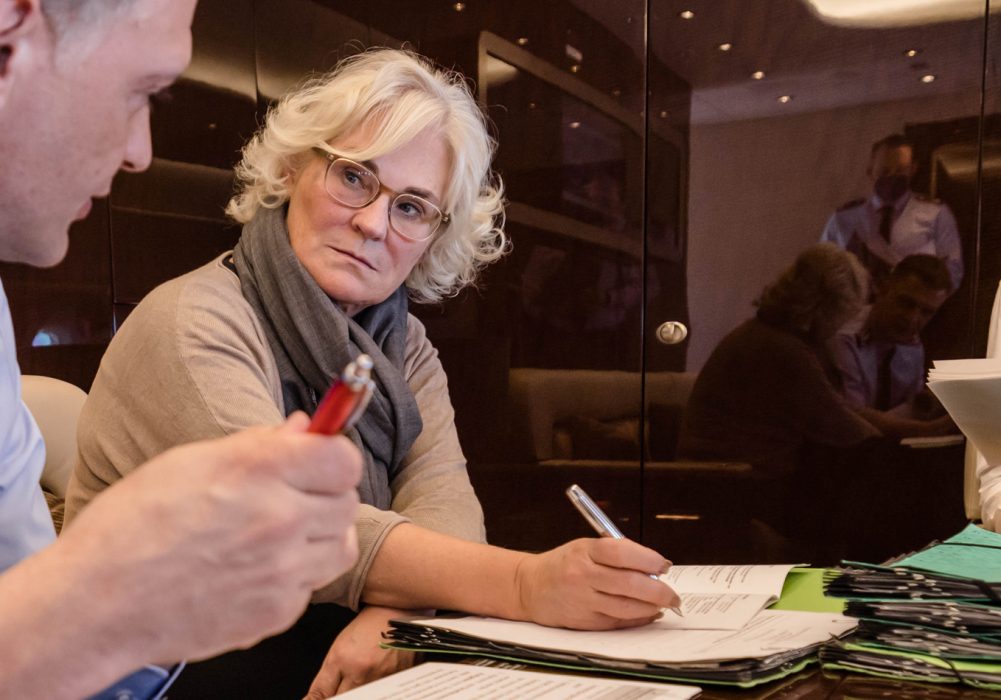
ESD: At the Madrid summit, NATO also outlined specific demands for its member countries. What does that mean for the Bundeswehr? In which areas does the Bundeswehr have to take additional steps, or what additional requirements will it have to meet?
Lambrecht: Germany will participate in NATO’s new Force Model. This involves a mechanised division with two combat brigades, a total of about 15,000 soldiers. In addition, NATO will be provided with up to 65 aircraft and 20 naval units and other support units and formations. In 2025, we will introduce the new Force Model with NATO.
ESD: Does the Bundeswehr need structural changes in order to be able to cope with the changed priorities set by NATO and the EU?
Lambrecht: With the establishment of the Territorial Command, we have already made an important structural decision. In the Army, there will be reorganisations to increase unit readiness for Cold Start.
In general, we are working on structures where this is necessary. However, we are also trying to avoid unnecessary reorganisations. A structure that will not be fully operational for several years will not help us in the current situation. The goal is to strengthen the force so that it can act quickly and boldly when needed. Only when that is guaranteed will I address structural issues.
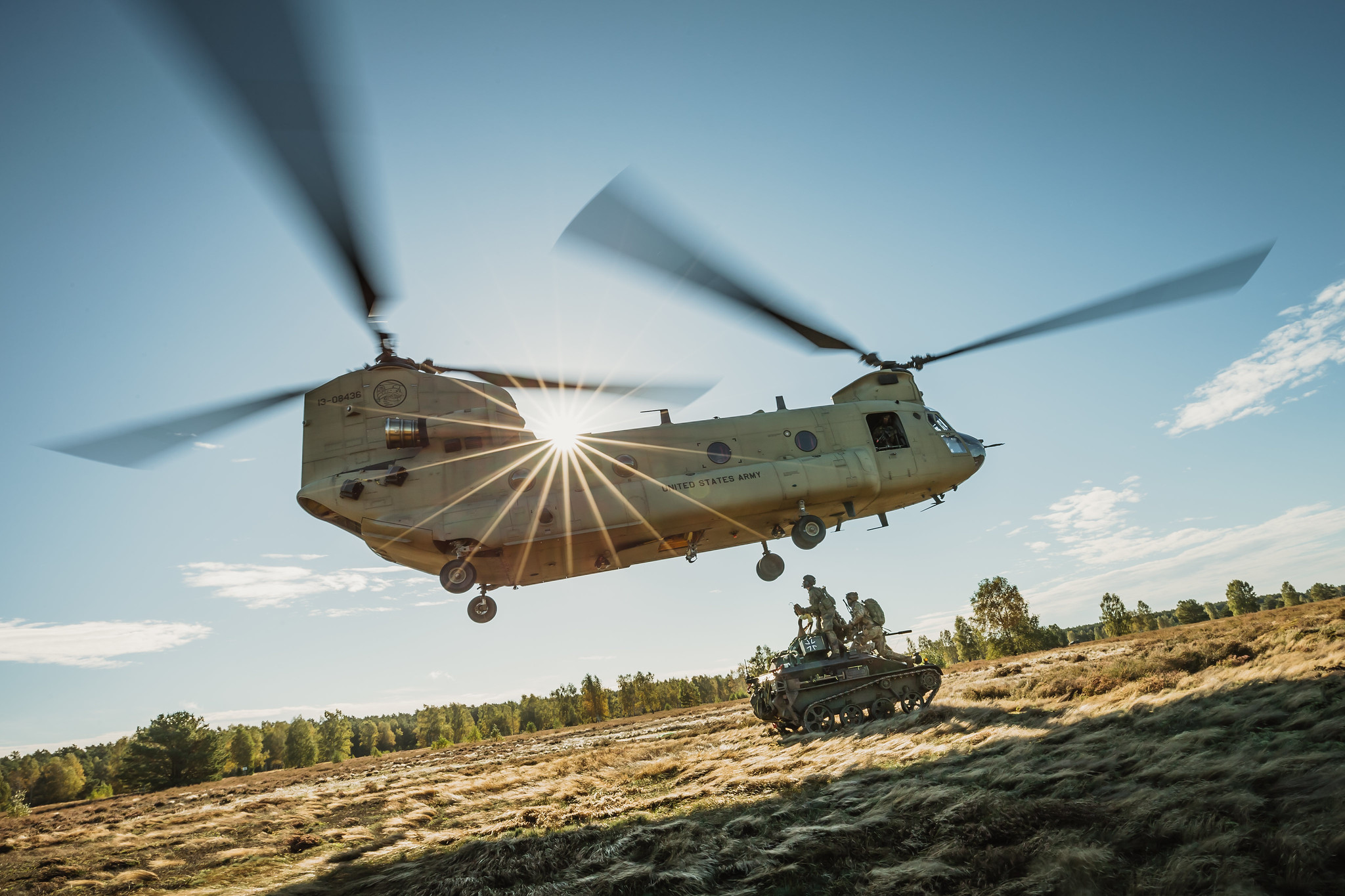
ESD: Is an even closer cooperation and integration of Europe’s armed forces necessary for the fulfillment of tasks and how far should or could an integration of European armed forces go in this decade?
Lambrecht: Stronger European integration is not only important, but necessary. With the Procurement Acceleration Act, we are very consciously strengthening the possibilities for European armaments cooperation. At the troop level, we have very good experience with integration at unit level with France, the Netherlands and the UK. The soldiers do not have to first learn about integration; it is now part of everyday military life. Decisions at the political level are important and good; we can’t do without them. But we will only reach our goal when we tackle the practical side of things collectively.
ESD: In the event of a potential conflict, Germany is no longer a frontline state as it was during the Cold War, but a hub for the transfer of troops and materiel to the potential crisis area. Overall, is Germany prepared for this, both militarily and in terms of the necessary civilian resources?
Lambrecht: There has been considerable progress here. The Territorial Command already mentioned is also pooling tasks and responsibilities in this regard. Cooperation with civilian agencies is also becoming better organised, partly as a result of the experience gained from the pandemic and flood relief.
However, we must not stop critically analysing the State’s overall resilience. For years, it was fashionable to outsource and even dispense with State capabilities. It is now worthwhile regaining such capabilities. We are taking this approach for the Bundeswehr, for example, with regard to the operational readiness of the Navy: We acquired the MV Werft Rostock shipyard in order to regain the ability to operate independently. This is an example from the maintenance sector, but perhaps it is a model for other civilian areas as well.
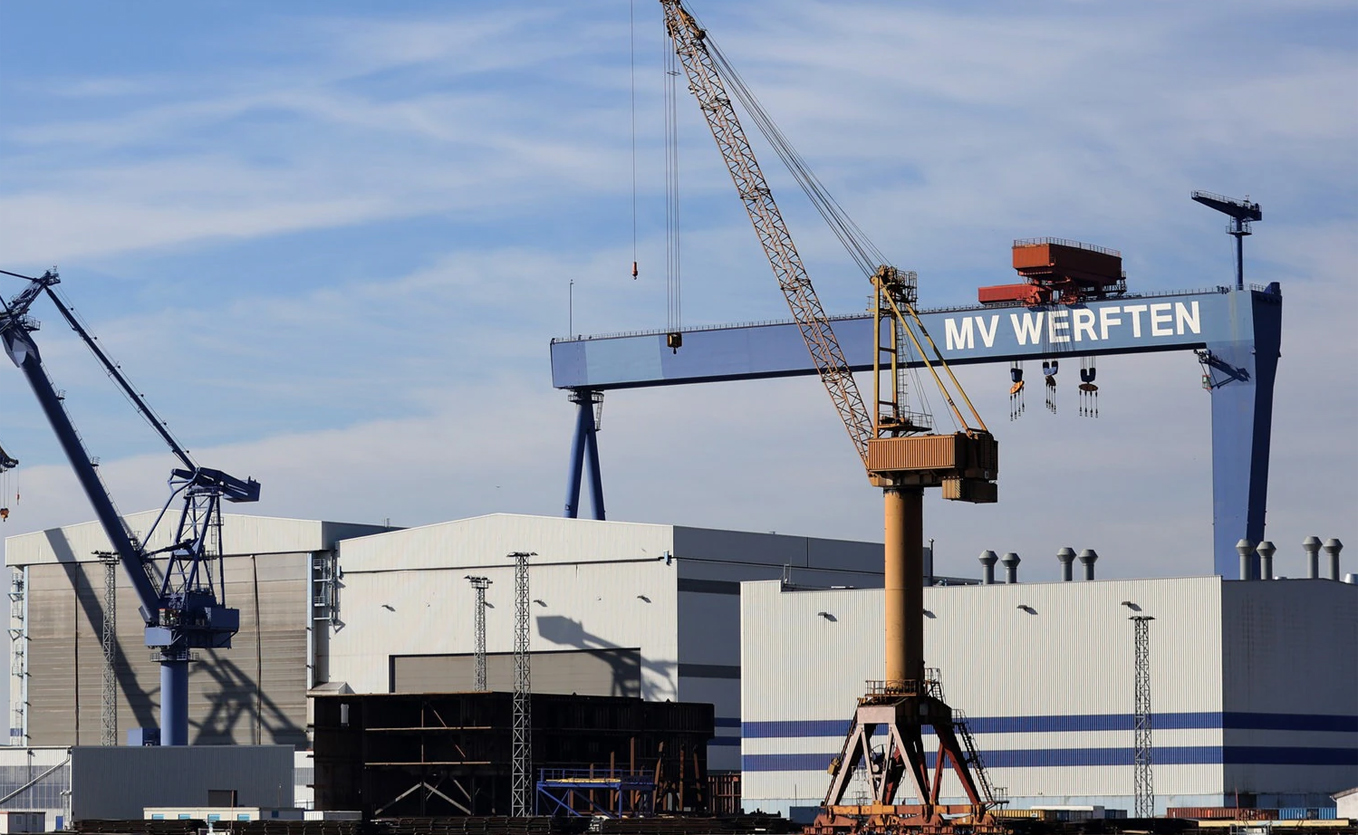
ESD: The €100Bn special allowance for the German Armed Forces and the increase in the federal budget have been conceived at the end of February. In the meantime, we are having to deal with fairly high inflation. Does that mean that significantly less can now be achieved with the funds available? Can you quantify that yet?
Lambrecht: It’s not possible to quantify that seriously. What we can see is that demand on the arms market is increasing quite considerably. That’s why we’ve put a lot of energy into our negotiations on the F-35 fighter aircraft, the CH-47F helicopter and other projects. We will now do everything we can to ensure that taxpayers’ money is used well and efficiently. I will only be satisfied when suitable equipment reaches the troops quickly. To this end, we will also hold industry to account.
ESD: Time and again there is political discussion about whether Germany needs a National Security Council. Haven’t the crises of the past years – Corona, the flood, Ukraine – proven that such a steering mechanism would be useful? And can’t the Corona Crisis Staff, which Major General Breuer headed, be a model for this?
Lambrecht: The examples you mentioned have shown, first of all, that we need to better position ourselves to manage and control crisis situations. That’s why we’ll soon have the Territorial Command. This is where crucial threads will come together.
ESD: In the coalition agreement, a “stocktaking” was announced with the aim of increasing operational readiness. When do you expect this to happen? Are there already initial results?
Lambrecht: We initially analysed the most urgent needs and very quickly implemented certain measures in advance. Experience from recent crisis situations has shown that regional structures need to be strengthened. To this end, the new Territorial Command will ensure command and control from a single source in the future. In addition, the Army will be reorganising itself from October 2022. The aim is to increase readiness, with the focus on national and alliance defence. We are also looking at other measures.
ESD: The procurement list that has been drawn up in connection with the special fund is quite extensive. What is considered especially high priority?
Lambrecht: My focus is on the things that are directly needed for protection and function: first of all, the personal equipment of the soldiers. The decisions for the TORNADO successor and for the heavy transport helicopter were overdue so as not to lose capabilities. It is also essential that they can be implemented quickly and at low risk. That is why market-available, proven systems are preferred. This also applies to digital command and control capability and interoperability with our partners, for which we need a modern generation of radios.
ESD: So far, the German Armed Forces are planning to increase their personnel numbers to 203,000. In view of demographic data and strong competition on the labour market, this is proving difficult. Do you have to rethink this?
Lambrecht: Recruiting personnel is currently challenging, especially due to demographics and the shortage of skilled workers. Like any civilian company, we have to compete for our young talent. The phenomenon is not new, but overall the Bundeswehr is doing well on the labour market. In surveys – especially among young people – we are one of the most attractive employers. Nevertheless, we have to work even harder to recruit personnel – and take advantage of every opportunity that presents itself.
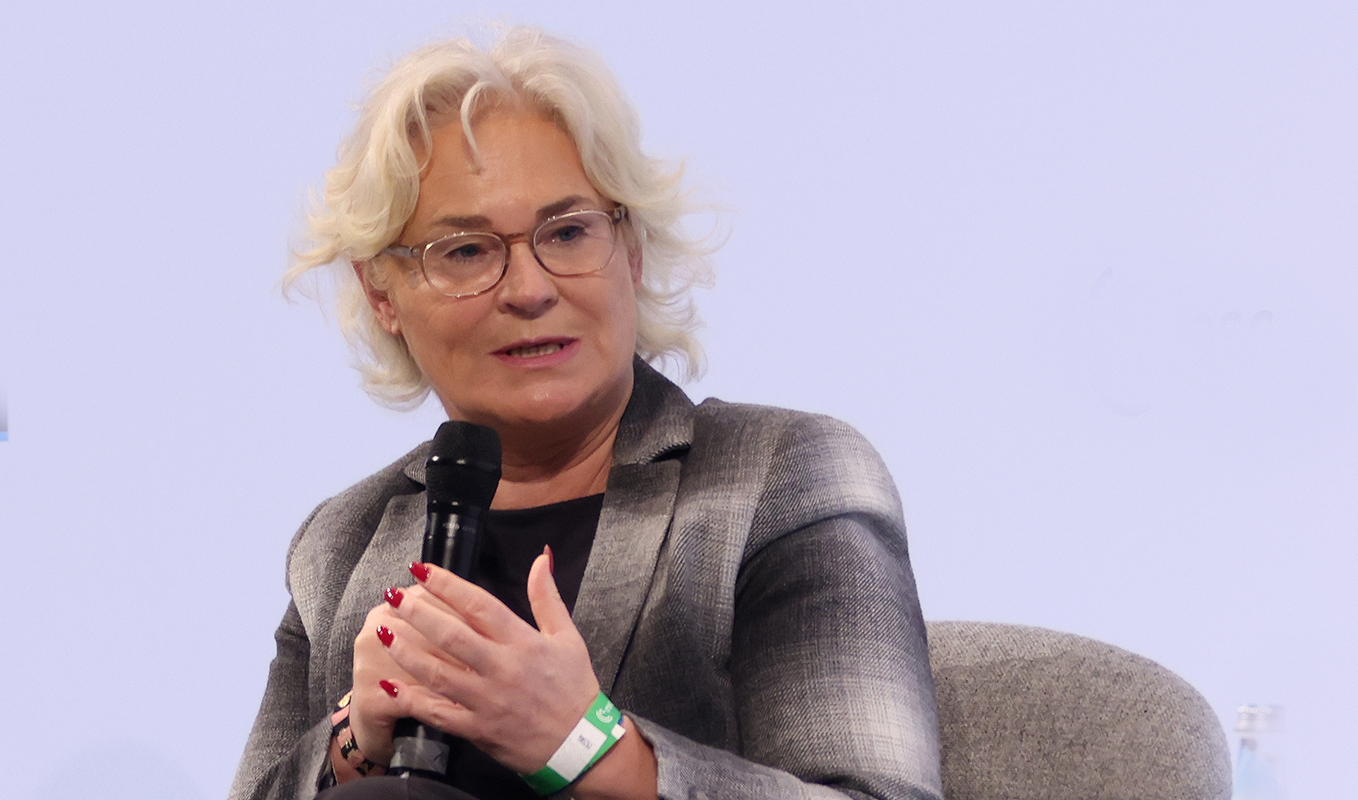
ESD: Does the new German Armed Forces Procurement Acceleration Act fully meet your expectations? Is there a need for further action? If so, where?
Lambrecht: Even before the Procurement Acceleration Act, we had already started to make things easier by raising the threshold for direct procurement. For 20 per cent of contracts, this means that a formal and therefore often lengthy and complicated invitation to tender can be omitted. This is a significant step. The Procurement Acceleration Act is now a major step forward because it makes the procedures much easier. The Bundeswehr’s procurement system has been much criticised. But we must not forget: Our personnel can only work as efficiently as the legal rules allow. And this is where there have been considerable bottlenecks in the past. Contracts were awarded in chunks and it was not easy to combine them. Lawsuits could drag on and even completely slowed down projects. With the new law, we are loosening the shackles at a crucial point. Are there any other measures? I don’t want to rule it out. But the first thing now is to operate in an unhampered manner. There is a lot of work waiting in the pipeline.
ESD: For the German Armed Forces, the “turn of the times” was understood primarily in material terms. Does the Bundeswehr also need a different mindset in these times? What should this look like?
Lambrecht: A year ago, we terminated the Afghanistan mission after 20 years. Most soldiers have grown up serving in operations, and they have carried out their political mandate. Since the annexation of Crimea in 2014, which violated international law, the focus has shifted back toward national and alliance defence. Russia’s invasion of Ukraine now finally marks the “turn of the times,” as the German Chancellor put it. The troops understand this very well and are keeping a close eye on the situation in Ukraine. That new mindset has been there for a long time.
Now the troops need equipment, infrastructure, personnel, and faster procedures. To achieve this, all players within the Bundeswehr must pull together and consistently focus on operational capability. We have been hearing this for years, but now there is no alternative. But the Bundeswehr needs the support of politics, industry and society as a whole just as much. A change of mindset toward the Bundeswehr is perhaps also called for there. And I also see it as my task to campaign vigorously for this.
The interview was conducted by Rolf Clement.








![2025 in the Western Balkans: A year-end SITREP Soldiers from the Czech company, part of the EUFOR Multinational Battalion, conducted a series of joint training exercises in Mostar alongside operators from Bosnia’s State Investigation and Protection Agency (SIPA). [EUFOR BiH]](https://euro-sd.com/wp-content/uploads/2025/11/Handshake_EUFOR-BiH-218x150.jpg)
![Stratus symbol Initially deployed during Operation Granby, the United Kingdom’s contribution to Operation Desert Storm in 1991, the RAF’s air-launched anti-radiation missile proved to be a radar killer. The missile remained in service, and in the RAF’s inventories, until 2013. [Thomas Withington]](https://euro-sd.com/wp-content/uploads/2025/11/ALARM-Thomas-Withington-Kopie-218x150.jpg)
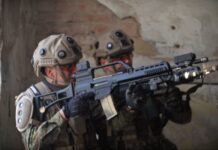
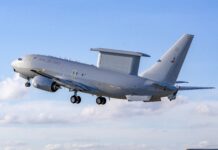
![Baltic Security: SITREP : US Soldiers assigned to 3rd Battalion, 8th Cavalry Regiment, 3rd Armored Brigade Combat Team, 1st Cavalry Division, Task Force Iron, fire a M1A2 Abrams tank during a live-fire demonstration for Iron Defender 25 at Orzysz Training Area, Poland, on 17 September 2025. [US ARNG/Sgt Eric Allen]](https://euro-sd.com/wp-content/uploads/2025/11/Abrams-firing_US-ARNGSgt-Eric-Allen-Kopie-218x150.jpg)
